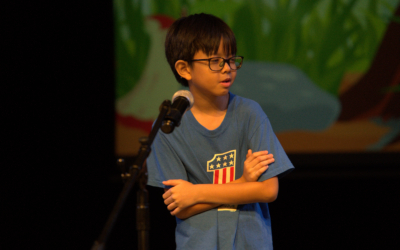What is Drama, Really?
What comes to mind when you think of drama? The stage? Actors? Props and costumes? Most of us think of performance when we think of drama, but drama is way more than that.

Let’s go back in time, to the beginnings of drama in Ancient Greece. Greek Theatre was not just a form of entertainment; it was a way for people to figure out life, the world, and what it means to be human. Drama brought people together physically and emotionally, and taught them laws and social scripts—how to live as a member of society.
Today, we often focus on performance over and above what truly matters—the process. Here is where developmental drama comes in. Developmental drama is interested in developing the individual more than it is in getting results or making someone famous.
The Dramatic Difference
While theatre or acting courses teach dramatic skills and acting techniques for performance, developmental drama uses drama as a tool to develop skills for life.
When drama enters the classroom, participants don’t just re-enact scenarios but actively engage with real-world experiences. Without the constant drilling that comes with stage performances, drama becomes a safe platform that drives critical thinking—a space to figure out how to react or respond to real-life situations.

The process of story-making in drama urges spontaneity and encourages participants to apply creativity in devising ideas and solutions for a story. They learn to work collaboratively with peers, in a diverse social milieu, towards a common goal.
Participants also build confidence in communication by acquiring dramatic skills. They discover effective ways to use their voice and body to express their thoughts and emotions.

Developmental drama is more than reciting lines on-stage and in character; it empowers individuals to find their identity and navigate society.


